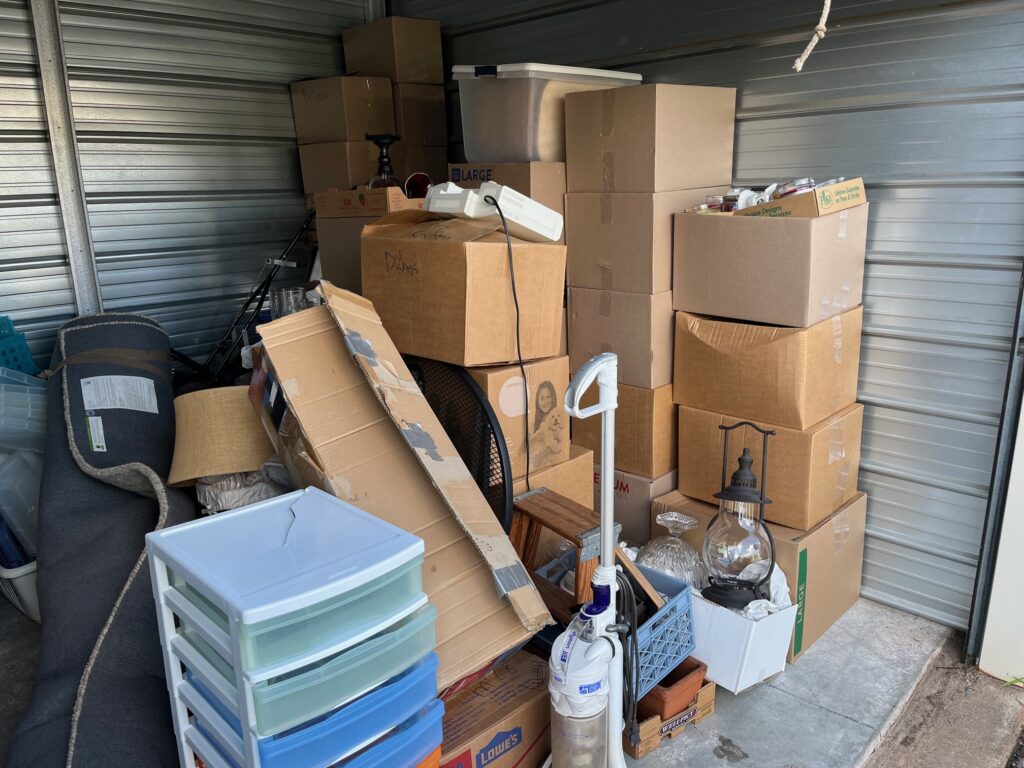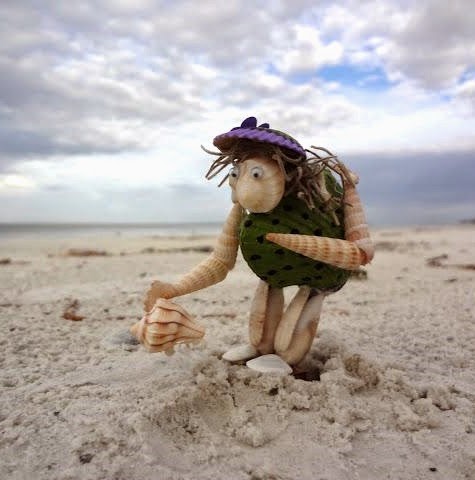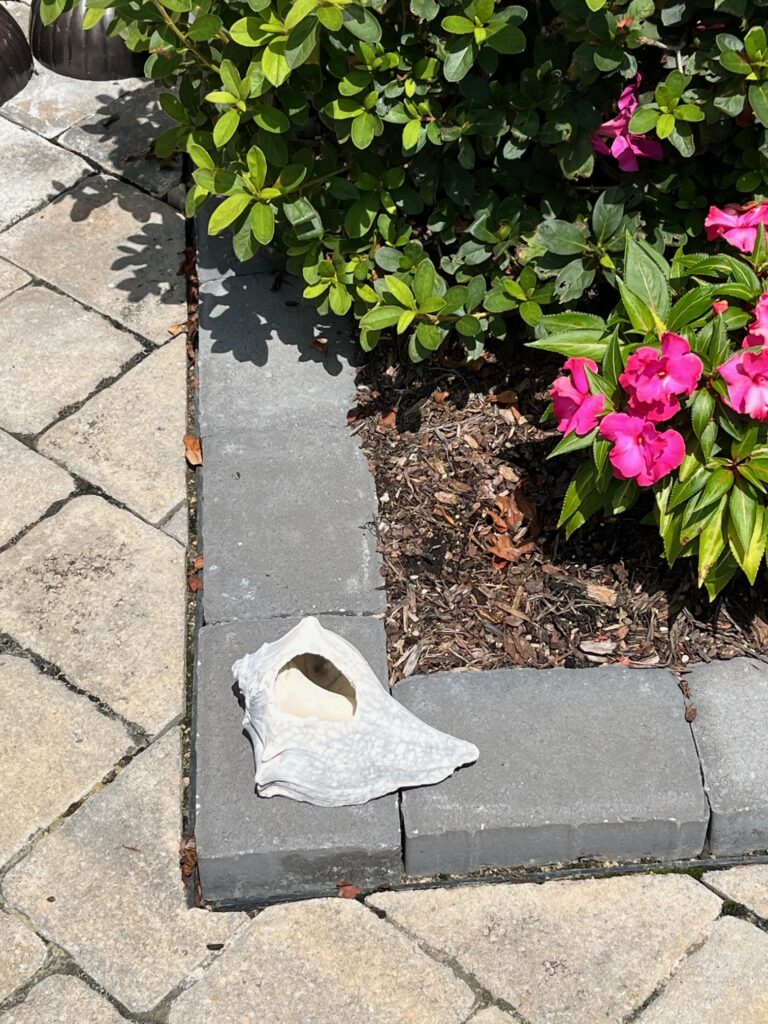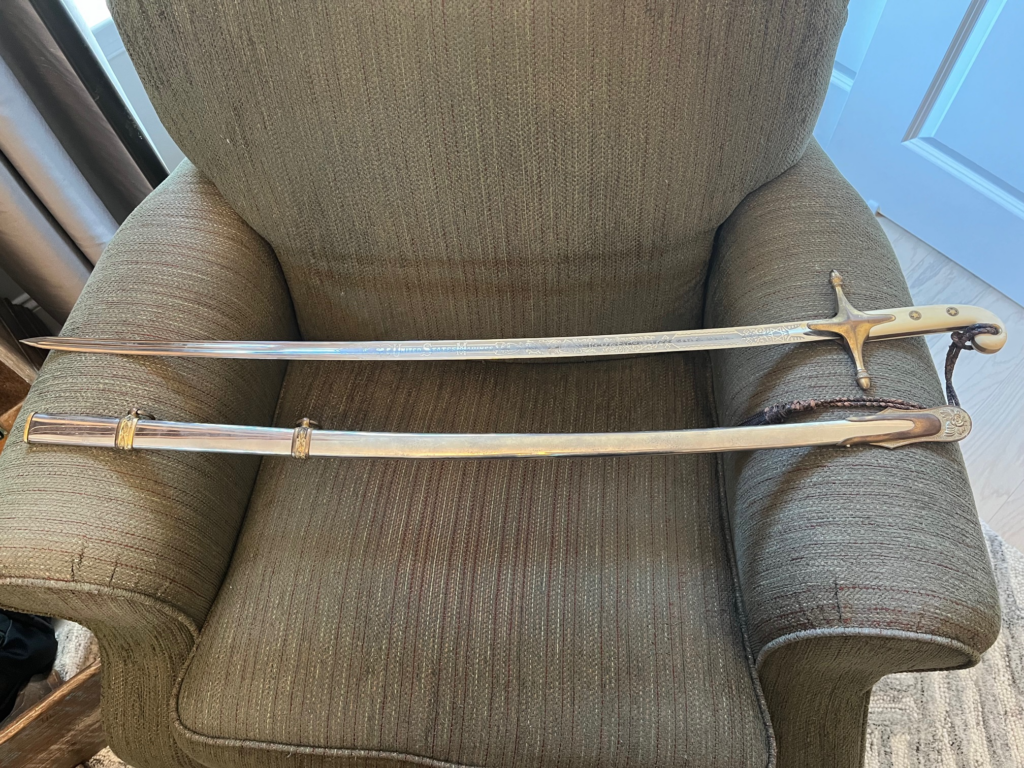
My wife and I just went through a major transition. More specifically, we “rightsized” our living arrangement—we went from an older, moderately sized house to a newer “courtyard” (patio) home that is slightly smaller (smaller rooms and closets).
We’ve actually been considering this for a while. As I wrote about a possible move a while back,
We don’t plan to anytime soon, but we might consider it if the right situation arose (location, type of residence, price, less maintenance, etc.). This is a tough time to buy and sell real estate. It might make more sense when we’re 75 or 80 than it does now. Assuming my wife will live longer than I do (statistically speaking), it’s something I’d like to do for her sake before I’m gone because I’ve seen how hard dealing with all that can be on a surviving spouse.
This happened rather suddenly because this type of house can be hard to find in our area and tends to be expensive (supply and demand, I guess).
A lot of townhomes and 55+ apartments are being built around us, and there are nice condos in the urban areas and near a large lake north of us (expensive), but we’ve never been interested in those. We’ve kept our eyes open for a resale of a newer single-family home (we didn’t want to build from scratch) with easier (and hopefully less expensive) house and yard maintenance in a quiet neighborhood that wasn’t more than 10 or 15 minutes from our church. Just such a home came up for resale that we both liked, and we decided to make an offer.
Our house wasn’t on the market, and we weren’t prepared to put it on. However, our offer on the new house wasn’t a contingency offer; nobody does those anymore because sellers don’t like them. It was accepted, so we were off to the races.
We had a lot of work to do to get our house ready to show. When we put our house on the market about two weeks later, it sold on the first day. Plus, we got an offer that was more than our asking price. It was quite a whirlwind, but we were grateful for the quick sale.
From a financial standpoint, I wanted to avoid borrowing money to make the move. Our contracts allowed us to sell our house before buying the new home.
But that presented a new challenge. The buyer wanted to close in approximately 30 days, so we had little time to pack and move. All of this proved to be much more challenging than any move we’ve made before because after living in our current house for about 20 years, we knew we’d have a lot of work to do and would need to let go of some things and make some sacrifices to make the move to the new home possible without renting a storage unit for the rest of our lives.
By God’s grace, we pulled it off and had back-to-back closings a few weeks later. The proceeds from the sale of my home (the first closing) were wired to the closing agent for the new house, so no loans were involved.
Of course, it doesn’t always work that way. Sometimes, you must take out a new mortgage, if only for a short term, until your current house sells if you need to close on the new home before then. However, avoiding those additional up-front costs and interest payments is better if you can.
We sold some things (or I should say my son did that for us) and gave some things away to our kids and some friends. We also stored a lot of “stuff” in a storage unit for an annual “yard sale” that our church has later to raise funds for our college ministry and their annual spring break trip (they call it “Anthem”—it’s a mix of fun, ministry, and evangelism).
Hopefully, we won’t have the storage unit for the rest of our lives.

Why is it so hard to let go?
Most of us would agree that we have too much “stuff.” By stuff, I’m referring mainly to things we have—and may have had for a long time—that we don’t use or wear very often (if ever). It’s the stuff that clutters our bookshelves, drawers, closets, garages, and attics (and for some in the South, their front yards—but it’s not called stuff; it’s “southern yard art”).
There are many reasons for having stuff, and not all are bad. Some things we own don’t fit my definition above because we use or wear them regularly; they have utility value to us. Or they may be things we enjoy, such as a nice picture, a painting, or a good book.
There are also things we may not use very often that have sentimental value—keepsakes and heirlooms are in this category. For example, just the other day, my wife suddenly seemed a little sad when she looked at me and said, “We forgot Dad’s shell.”
I don’t remember her dad ever having a shell; most people don’t, LOL. Maybe there are exceptions. . .

Seriously, it was a conch shell that he kept on his front porch for decades. When he was younger, he made several mission trips to the Caribbean islands and may have gotten it there. He also enjoyed saltwater fishing, and I took several trips with him. Maybe he picked it up on one of them.
It’s not the prettiest conch you’ll ever see, but that wasn’t the point. He gave it to her because he knew she liked to collect shells (and rocks, antique buttons, hammered aluminum serving dishes, and other things, but I digress). It was in our backyard in a garden, and we had left it behind. So she and my daughter returned to the house and retrieved it; now it has a new home. (If you’re wondering why it has a big hole, it’s because when the conch creature is harvested for food, that’s the best way to get it out).

We men are not immune to such heartfelt sentiments. I have some memorabilia from my father, mostly from his military career as a Marine. I particularly like his dress sword (I don’t think he actually used it in any sword fights, as far as I know). It’s pretty old—probably from the ’20s or ’30s—and a work of art.

I also have a handmade trolling lure made from cedar wood that my uncle gave me. He lived in the Chesapeake Bay area and was an expert saltwater fisherman. I had the opportunity to go fishing with him a few times, which I fondly remember. (I especially enjoyed catching big Bluefish in the bay; they weren’t fit to eat, so he’d bring them home and bury them in his garden as fertilizer.)

I think keeping heirlooms or things with real sentimental value makes perfect sense. But your old Little League jersey from your 9-year-old All-Star team probably doesn’t unless it has some real value because you’re also a former Major League All-Star. I had a collection of my 10K road race T-shirts from when I ran them in my 20s and 30s, and I will certainly never fit into them again (and if I could, I probably won’t be able to put them on myself), so they had to go.
A Biblical Perspective
There are some dangers in holding on too tightly to our stuff. The other day, I talked to a friend visiting shortly after we moved and remarked, “There’s a little hoarder in all of us.”
From a clinical perspective, hoarding is defined as,
“A disorder that manifests as a persistent difficulty in discarding or parting with possessions because you believe you need to keep them. You may experience distress at the thought of getting rid of the items. You begin to keep or collect a large number of items, regardless of their actual value. Hoarding ranges from mild to severe. In some cases, hoarding may not have much impact on your life, while in other cases it seriously affects your daily functioning.”
Source: https://www.mayoclinic.org/diseases-conditions/hoarding-disorder/symptoms-causes/syc-20356056
Hoarding as a mental/emotional/spiritual disorder is a persistent, long-standing difficulty with discarding items, even everyday items such as grocery bags and magazines, as opposed to a temporary situation such as excessive clutter.
People with a hoarding disorder experience real pain and distress at the thought of getting rid of something because of its perceived value for utility, aesthetics, or sentimental attachment.
Most of us wouldn’t consider ourselves hoarders and probably aren’t in the extreme clinical sense. Still, if you’re anything like me, you may sometimes have difficulty throwing away or letting go of possessions. It’s a natural condition of the human heart.
That said, I think there’s a difference between hoarding and “having a lot of stuff” or “collecting stuff.”
Many people have collections. I have a coin collection, and my wife would say I collect books since I have so many. I also have (or had) a weird collection of wind-up toys and recently donated many of them to my church’s children’s ministry point store. I have a hot sauce collection—one on a shelf (because the bottles are pretty cool and most of the names are clever or funny and sometimes PG-13 rated), one in the kitchen pantry awaiting consumption, and a few in the fridge.
Am I hoarding hot sauces? Perhaps, but they’re not blocking the entry to the house.
The Bible gives us some insight into this. One theme is our tendency to become overly attached to our worldly possessions. In the Gospel of Luke, the disciple refers to Jesus’ words in the parable of the rich fool and instructs, “A man’s life does not consist in the abundance of his possessions” (Luke 12:15).
Luke isn’t saying that possessing things is sinful, but the frivolity of excessive possessions, especially when our hearts are too fond of them, and they become more important to us than spiritual things (Luke 12:20-21).
Just as our lives aren’t defined by what we have, neither are we to look to “things” for our peace and security. Jesus goes on to tell his disciples, “Do not be anxious about your life, what you will eat, or about your body, what you will wear” (Luke 12:22). He reminds them that just as God feeds the creatures and clothes the flowers, He also promises to provide for His children (Luke 24b-25).
I understand holding on to something you think you’ll need in the future or because it seems wasteful to throw things away. However, another key theme in Scripture is the uncertainty of the future (James 4:13-15). We can tend to hold on to things because we think, “Someday I’ll ….(fill in the blank), which will require the use of a thing. But often, that someday never comes.
It can also seem wasteful to throw away something you probably don’t need any more; it can feel like throwing money away. But I think that’s where generosity comes in. Maybe you can give it to someone who can use it, donate it to an organization that can, or sell it to raise money to pay bills or pay off debt or to help someone else do that.
In any case, if you think about some of the things you have that you don’t have a practical use for but have been keeping in your closet or drawer for years, you can begin to understand the challenge.
The larger narrative in Scripture calls for Christians to have an eternal perspective on life. We’re instructed to “set our affections on things above” (Col. 3:2-10). Despite their tempting allure, we need to hold on to the things of this world very loosely as we contemplate a very different existence in eternity, when we will no longer be caught up in the immediate, temporal world and will no longer have to fight the battle of affections that are at war in our hearts (Rev. 21:1-27).
Letting go is hard to do
Letting go of some things can be difficult and sometimes painful. Consider retirement itself. It’s a significant life transition time when the familiar patterns of work/career are lost, and life begins to look and feel very different. Retirement is much more than just stopping work; it’s letting go of many things, which can be very hard for us.
We live and work in a world consumed by titles, roles, professional accomplishments, promotions, and accolades, not to mention the desire to earn more money (1 John 2:15-17). To whatever extent these things have been meaningful to us, retirement is a significant act of letting them go. It requires us to let go of these things and ushers us into a very different place and opportunity to live out our true identity that isn’t based on a career.
Focusing on our identity in Christ as God’s chosen and redeemed people can help us escape the fleeting trappings of the world and find joy and fulfillment in things other than possessions and careers (1 Pet. 2:9-10). The most significant purpose we can fulfill in retirement is to assume the role of “elder.”
I don’t mean elder as an ordained officer of the church (although that may be the case for some) but as someone who possesses wisdom, character, and leadership ability—the presumed fruit of experience and age (Lev. 19:3-28).
As we let go of our careers and embrace a new “career” as elders in our church and community, generously giving of our time, talents, treasure, insight, wisdom, and prayers on behalf of the generation(s) to come, we will find great joy and fulfillment in retirement.
Furthermore, we will not experience the crushing sense of loss and emptiness that so many experience when they have to let go of the things that have captivated them for a lifetime (Phil. 3:13-14).
